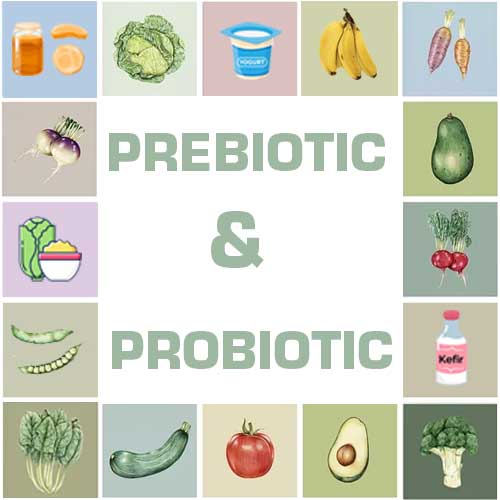
IS GHEE A SUPERFOOD ? LET'S POP THE BUBBLE
Share
IS GHEE A SUPERFOOD ? LET'S POP THE BUBBLE
Ghee, also known as clarified butter, has lots of unclarity regarding its nutritional benefits. Lately, it has been making its presence felt for all the right reasons in the health circuit. So, what are those benefits which have given Ghee its place in the category of Superfoods?
But before that the misconception about fats needs to be jolted and we need to ponder more about the consumption of fats.
Fats are essential nutrients of a balanced diet. Fats can be referred to as Good Fat (polyunsaturated fats) or Bad Fat (Saturated fats usually).
Contribution Of Fats In Our Health :
- Source of energy
- Maintains body temperature
- Hormone synthesis
- Essential fatty acids like omega-3 & 6 are not synthesized by our body so obtained from good fat foods like ghee, avocados, nuts, etc.
Nutritional Value Of Ghee

Daily Intake Of Fat
Daily intake of saturated fat in adult men should be less than 30 gm per day and in women it is less than 20 gm per day. Whereas the amount of trans fat should be less than 2.2 gm per day both in adult male and females.

Why Is Ghee A Superfood ??
Ghee is a kind of saturated fat. But despite being a saturated fat, ghee makes it to the list of super foods because it is made up of short chain and medium chain fatty acids. Therefore, it is easy to digest and 96% of ghee can be absorbed by our body as compared to other fats.
Ghee is one of the ancient food products known to mankind. It doesn't need any preservatives or technology to prepare. That makes it an Organic,completely Natural Product. It is a milk by-product which is lactose and casein free. It has great shelf life and is not prone to oxidation when stored at normal temperature due to its very low water content.
Ghee is a source of fat soluble vitamins A, D, E and K (K2). Vitamin A and E are powerful antioxidants, whereas vitamin D and K are important for immune system and bone health. Ghee also contains vitamin K2 essential for calcium and other minerals uptake.
Ghee is a superlative source of omega 3 fatty acid that helps in maintaining good gut health. Butyric acid present in ghee is anti-inflammatory in nature and a detoxifier too, that improves colon health. Along with that ghee also contains lauric acid which is a potent antimicrobial and antifungal substance. This helps in fighting against infections like flu, common cold, eczema, stomach infections, etc
Ghee is touted as a potent anticarcinogenic superfood due to the presence of CLA (Conjugated Linolenic Acid), and Butyric acid.
Ghee also contains amino acids like lysine, methionine, arginine, threonine, glutamic acid, and cystine. These amino acids are needed for the enzyme synthesis and protein synthesis for overall growth.
Testosterone, progesterone, and estrogen are sexual hormones which are derived from saturated fats. So, ghee is very beneficial for both male and females for sexual health.
Fallacies About Ghee ? And Their Counter Facts
- Ghee is bad for the heart as it contains cholesterol. Factually, ghee is a source of good cholesterol. Thus prevents diseases like high blood pressure and heart diseases.
- Difficult to digest. In reality ghee is easily digested as compared to other fats as it is made up of short fatty acid chains which are easily and directly absorbed by the intestine.
- A weight gainer. This fallacy is not 100% incorrect but obesity doesn’t result from intake of ghee only. It depends on other lifestyle habits too.
- Bad for lactose (milk) intolerant people. According to nutritional profile ghee is completely lactose and also casein free. So people intolerant to dairy or milk products can use it safely.
All these fallacies are only possible if a person is having an excessive amount of ghee in daily life with very limited physical activity including exercise. As ghee is a saturated fat, its excess will eventually lead to hyperlipidemia (high cholesterol), obesity, heart diseases, stroke, and other complications too.
How To Introduce Ghee Sensibly In Diet ?
The other main important aspect about ghee is the way we add it to our diet.
- First of all ghee has a very high smoking point so cooking with ghee is really easy as compared to vegetable oils like peanut oil, sunflower oil. It can be used for stir frying, tempering, etc
- Introducing ghee with turmeric milk is very beneficial in constipation, inflammatory conditions, etc. Use skimmed milk to avoid excess fat.
- Ayurveda recommends taking ghee on an empty stomach early in the morning for the best health results.
- You can make nuts (almonds, cashew, pistachios, walnuts, etc) and seeds (flax, pumpkin, etc) bars, laddoos, with ghee to boost immunity and for the introduction of good fats in your diet. Try to add jaggery or date instead of refined sugar for better results.
- You can replace ghee with butter or margarine, on your toast or paranthas but in a limited amount.
- But remember adding ghee in already nutrient dense meals should be avoided.
Conclusion
Ghee or clarified butter is a natural, pure and organic product which if consumed in limited specific doses on a daily basis can yield wonderful health benefits. It is a superb source of good fat which has antioxidants, anti cancerous properties and many more. It is great for your skin and hair health too. But yes, overconsumption of ghee can lead to obesity, heart disease, high blood pressure and increased LDL levels too. So, be careful with quantity to make ghee intake flourishing for you rather than fattening.

Written by
Dr. Sonia Solanki





